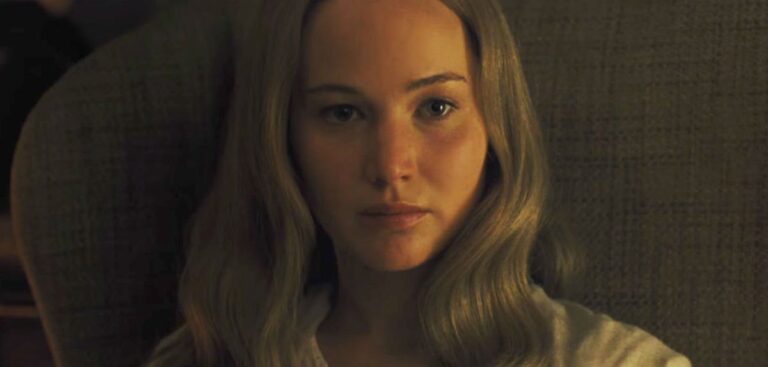There are myriad ways in which one can interpret Darren Aronofsky’s latest, the sure-to-be-polarizing psychological thriller mother! Is it a parable about toxic masculinity and the fragility of the male ego? Is it an indictment of a patriarchal society that reduces women to subservient beings, meant only to satisfy the needs of their male counterparts? Is it an allegory for the very act of creation itself, whose foundations are rooted in destruction and chaos?
mother! could simultaneously be all of these things, none of these things, or something else entirely – Aronofsky, who wrote the script over a period of five days, told attendees at the Venice Film Festival that mother! is about climate change and the future of the planet. But regardless of what (if any) deeper meaning viewers derive from the experience, it’s indisputable that Aronofsky has crafted a project that refuses to play by established cinematic rules.
In the center of a tranquil meadow looms an ancient house, where Mother (Jennifer Lawrence) toils away tireless at the building’s repair and restoration after a fire ravaged the structure some years earlier. It’s the childhood home of her husband, credited simply as Him (Javier Bardem), a poet struggling with writer’s block who believes that “bringing some life into this house” will unlock his mental barrier. Their quiet, countryside existence is disturbed by the late-night arrival of a Man (Ed Harris), claiming to be a local physician who mistook the residence for a bed and breakfast.
Despite the Man’s flimsy story and Mother’s clear reluctance to allow the stranger into their home, her husband invites the visitor to spend the night. The Man immediately sets about making himself at home, lighting up cigarettes indoors and pouring himself numerous glasses of whiskey, but these social indiscretion pale in comparison to those of his wife (Michelle Pfeiffer), who arrives the next morning. The Woman staggers drunkenly from room to room, pawing at priceless pieces of memorabilia, wrinkling her nose at the home’s architectural style and asking invasive personal questions about the sexual escapades of her hostess. And then her two adult children (Brian and Domhnall Gleeson) arrive, and events take a decidedly darker turn.

Up until this point, mother! is a fairly straightforward thriller with the occasional stylistic flourish, such as when Lawrence’s character presses her hands against the wall and closes her eyes, sensing the beating heart of the home beneath the wood and wallpaper. But for the latter half, Aronofsky turns the dial all the way to eleven and wages all-out war against the audience’s perception of reality, a sustained cacophony of sound and imagery that’s at once bewildering, contradictory, and terrifying. Much like our heroine, the audience is no longer able to discern which events are actually happening, and which are imagined, leading to a frightfully unsettling experience that should easily be among the year’s most talked about.
The success or failure of mother! hinges almost singularly on Lawrence – nearly the entire film is told from her point of view, and she appears in all but the briefest of scenes – and her performance is dynamite. Mother’s desire to nurture often manifests as timidity as she wilts in the face of her husband’s whims, and the growing confusion and paranoia as these outsiders disrespect not only her, but the very home she’s trying to build for Him, gives way to all-consuming rage as she reaches her breaking point. A performance of this magnitude takes a heavy physical and psychological toll – Lawrence reportedly tore her diaphragm while hyperventilating during a particularly emotional scene – and Aronofsky’s reputation for pushing his performers well beyond their perceived limits is on full display here.
A relentless assault on the senses, mother! is more akin to something that you survive, rather than an experience you actually enjoy. Aronofsky has created a film that practically begs to be challenged and dissected, one that will either be fiercely loved or vehemently hated – and as the director himself once said, “all I want is for people to cheer or boo. I just don’t want anything in between.” If that’s his only goal, then consider it accomplished.
Aronofsky's psychological thriller wages all-out war against the audience's perception of reality, a sustained cacophony of sound and imagery that's at once bewildering, contradictory, and terrifying. It's more akin to something that you survive, rather than an experience you actually enjoy.
-
Score8

